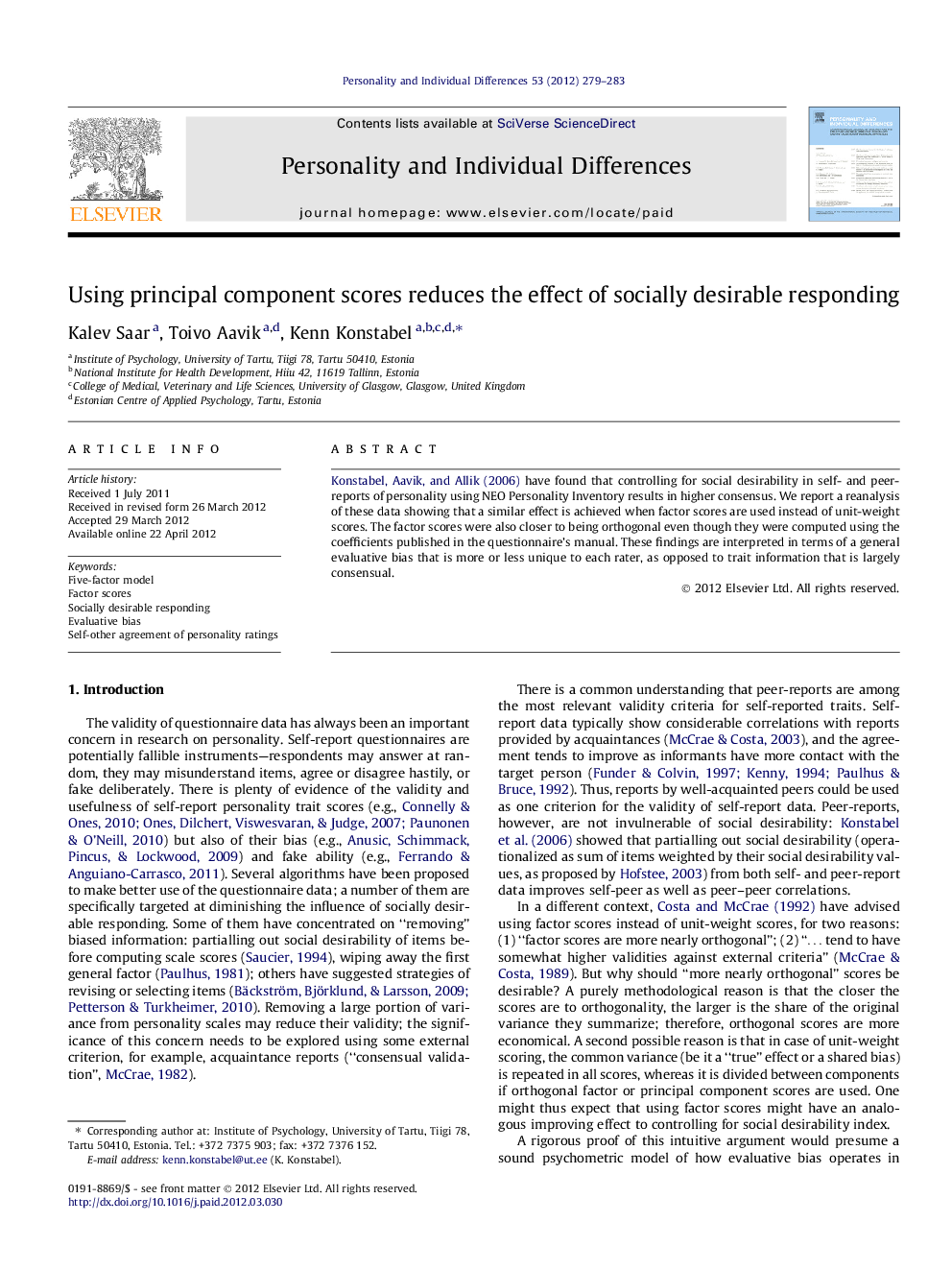| Article ID | Journal | Published Year | Pages | File Type |
|---|---|---|---|---|
| 891014 | Personality and Individual Differences | 2012 | 5 Pages |
Konstabel, Aavik, and Allik (2006) have found that controlling for social desirability in self- and peer-reports of personality using NEO Personality Inventory results in higher consensus. We report a reanalysis of these data showing that a similar effect is achieved when factor scores are used instead of unit-weight scores. The factor scores were also closer to being orthogonal even though they were computed using the coefficients published in the questionnaire’s manual. These findings are interpreted in terms of a general evaluative bias that is more or less unique to each rater, as opposed to trait information that is largely consensual.
► We compared the consensus of personality ratings using two scoring algorithms. ► Principal component scores yielded higher consensus than unit-weight scores. ► Principal component scores had lower intercorrelations than unit-weight scores. ► We conclude that using principal component scores reduces the effect of general evaluative bias.
